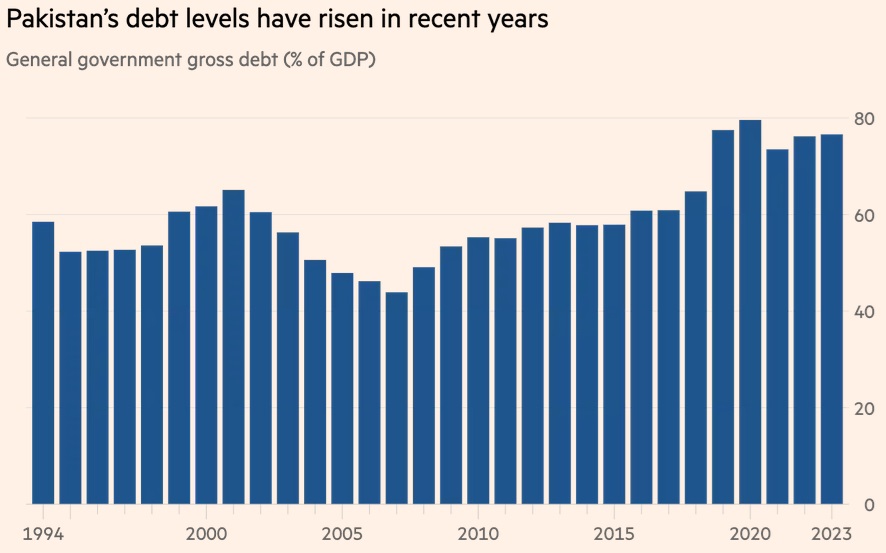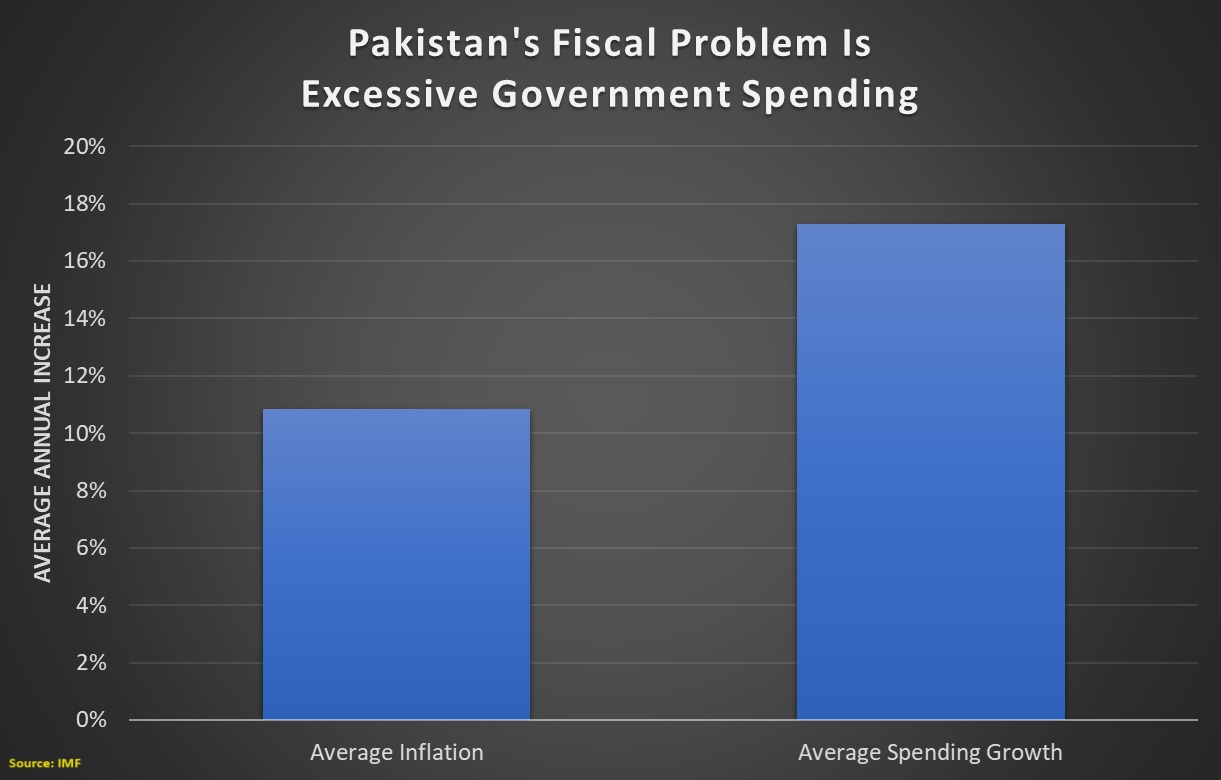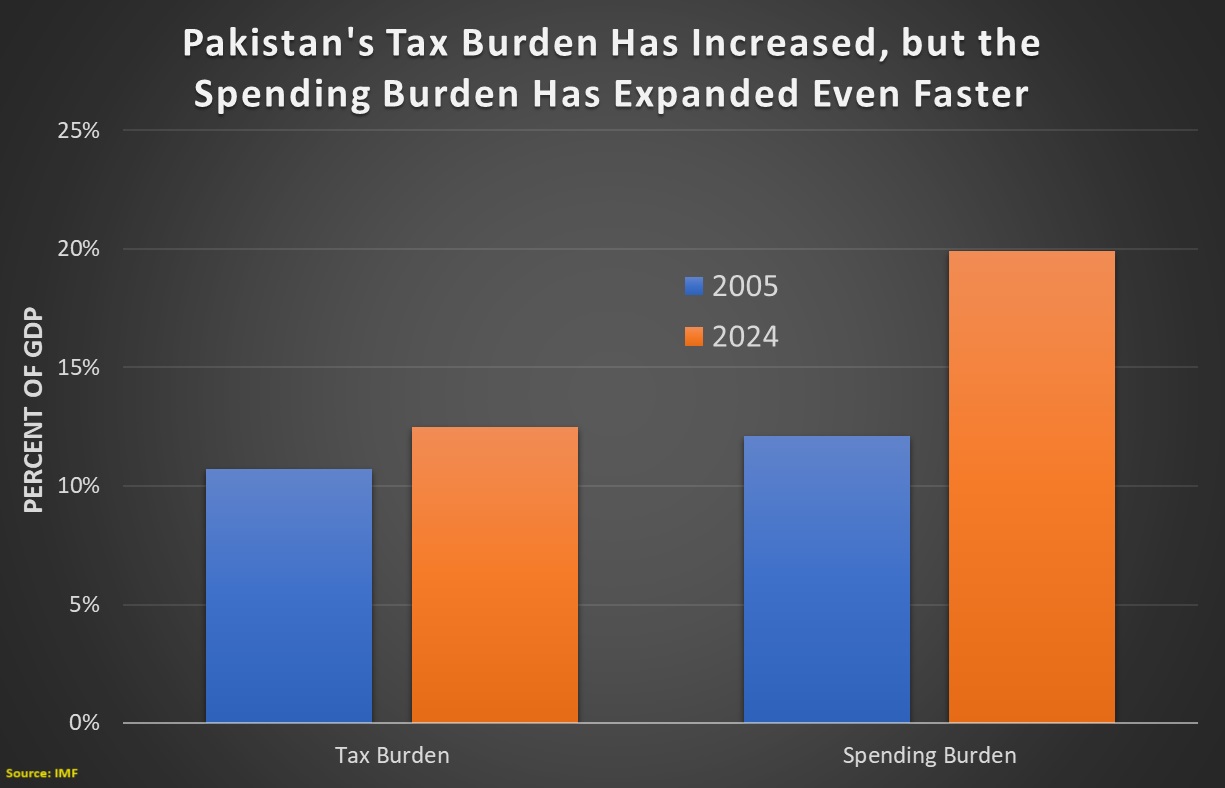Citing a report in the New York Times, I wrote two days ago about how excessive government spending is the real reason for economic and political turmoil in Sri Lanka and Bolivia.
Kenya and Pakistan also were featured in the story, but I didn’t focus on those countries because I had previously written about (see here and here) how they got in trouble because of a growing burden of government.
For today’s column, though, I’m going to revisit fiscal policy in Pakistan because the U.K.-based Financial Times has a story about the fiscal mess in that country.
The report includes this chart showing that debt has skyrocketed over the past 20 years.
And here are some excerpts from the report, written by Humza Jilani and Farhan Bokhari.
As you can read, the focus (for both Pakistani politicians and IMF bureaucrats) is figuring out how to extract more money from taxpayers.
Pakistan’s forthcoming IMF bailout “will not be our last” if the government fails to significantly boost tax revenue, the country’s finance minister has warned… Aurangzeb, a former career banker, was appointed by Prime Minister Shehbaz Sharif in March to steer one of Asia’s most troubled economies, which has been grappling with double-digit inflation, sluggish growth… He announced a tax-heavy budget last month aimed at shoring up public revenue and satisfying the IMF, which has long demanded Islamabad improve tax collection… the IMF programme…would be Pakistan’s 24th with the multilateral lender.
My knee-jerk assumption is that fiscal problems almost always are the result of bad spending policy.
But maybe the FT report identified an example where there was a problem caused by inadequate taxation. So I went to the IMF’s massive database and crunched the numbers to see why Pakistan was in fiscal trouble.
Lo and behold, I was not surprised to learn that the problem is on the spending side of the fiscal ledger. Our first chart shows that government spending has been growing much faster than inflation over the past 20 years.
For our second chart, I also compared tax and spending burdens in 2005 with tax and spending burdens today.
Once again, I was not shocked to learn that the tax burden has increased, but Pakistan is in fiscal trouble because the spending burden grew much faster.
I’ll close this column by reiterating how I ended my column two days ago – by pointing out that it is a shame that governments (and IMF bureaucrats) seem incapable of learning the right lesson. Or focusing on the right solution.
P.S. If nothing else, I give Pakistan credit for creative tax-enforcement tactics.



No comments:
Post a Comment